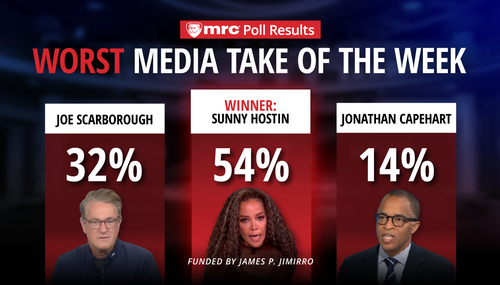 Jonathan Chait is one of the Founding Fathers of Bush Derangement Syndrome. Way back in '03, the New Republic senior editor authored one of BDS's early, seminal works: "The Case for Bush Hatred," whose very sentence was the subtle: "I hate President George W. Bush."
Jonathan Chait is one of the Founding Fathers of Bush Derangement Syndrome. Way back in '03, the New Republic senior editor authored one of BDS's early, seminal works: "The Case for Bush Hatred," whose very sentence was the subtle: "I hate President George W. Bush."Ah, but Jonathan Chait isn't a mere one-hatred man. As of this morning, we can conclusively state that in addition to his animus toward our nation's chief executive, Jonathan Chait also hates lower taxes.
In his New York Times column "Captives of the Supply Side," Chait directs his ire at lower federal taxes in general, and in particular toward those who believe that lowering tax rates can actually yield higher total tax revenues. This is of course the theory behind the Laffer Curve, based on the notion that lowered tax rates are more than compensated for by the additional economic activity they stimulate.
Chait variously derides tax-cut proponents as "the economic far right," calls supply siders "the most extreme and counterfactual subgroup" among anti-taxers, labeling believers in supply-side economics "fanatical ideologues." His new book dismisses their ideas as "crackpot" and a "con."
There's only one small cloud on Chait's higher-taxes horizon: the facts. As he somewhat sheepishly acknowledges along the way:
Granted, economic growth sometimes causes revenues to rise faster than expected after a tax cut, as has happened since the 2003 tax cut.Uh, yeah, there is that.
But not to worry. Chait goes on to argue that in any case, in most cases higher tax rates will yield higher total tax revenues. We'll leave it to others to determine the precise point on the Laffer Curve that yields the highest return. But I would make two observations:
- Why, in any case, should our goal be to set tax rates at the point likely to collect the maximum amount of money for the federal government? Why feed the monster? We should instead be seeking to send to Washington the absolute minimum necessary to fulfill the indispensable functions of the federal government.
- As a senior editor of the New Republic, Chait is a voice of the liberal establishment. It might be difficult to predict what precisely would be the foreign policy of a new Dem president. But one thing is beyond cavil: domestically, raising taxes will be a key goal of any Dem White House denizen.




